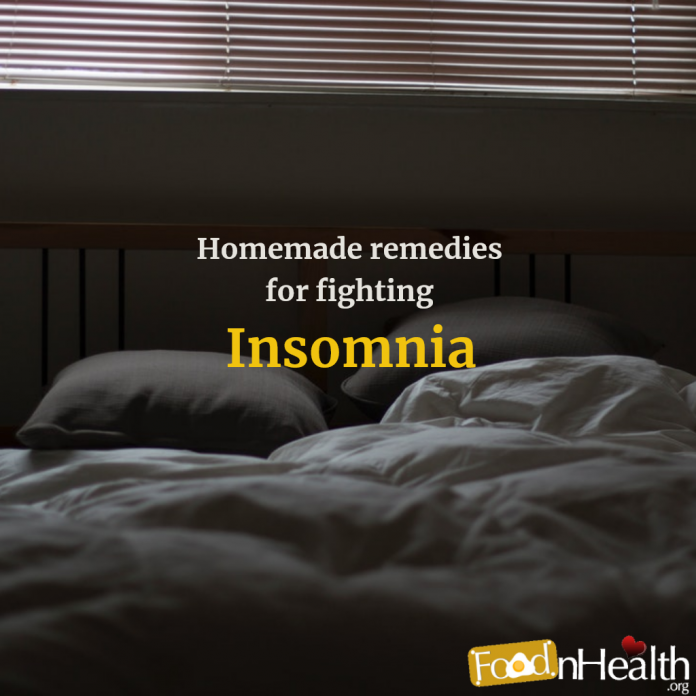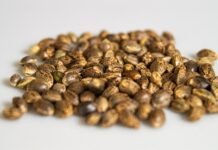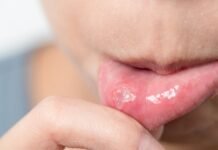There are many sleep disorders, but insomnia is surely the most common in Europe and North America, and you’ve guessed it, it comes with stress and many work hours and cares about money and getting thru the day. Approximately one third of the population in the developed countries suffers insomnia, and half of them have difficulties sleeping only few days a week, which is alarming. Insomnia can be seriously dangerous for your health, and the numbers are also very serious, meaning people who suffer insomnia are four times likely to develop depression, more likely to develop heart disease, are at greater risk of an accident at work, at home and at the road and overall are more likely to give poor results professionally.
And sure, modern medicine has a cure, prescribed or over the counter pills will help you instantly, but you are most likely to develop an addict, and it only works on the short term… On the long term these pills will do you more harm than good, and this is a medicinally proven fact.
Get rid of insomnia naturally
Fortunately there are many ways to get rid of insomnia naturally, with remedies found in your own home, and with methods that will help you get the sleep you so much need and create a habit that will last you a lifetime, without the conventional medicine pills!
Next time you roll around the bed thinking of all you should not in your bed, get up and try some of the down mentioned remedies and methods, you got nothing to lose, except time. And time not sleeping is a lot, so go for it!
- Insomnia? Try warm milk and honey – this is the easiest and cheapest way to give your body the rest it needs. Milk contains tryptophan, and it is no surprise it the one of the main compound in sleeping pills, it helps, and it helps a lot. This compound increases the amount of serotonin, a hormone that works as a natural sedative for the brain, and honey works as a vehicle that carries this hormone faster to your brain (it rides on carbs). Adding a banana will help convert tryptophan to serotonin faster, and you are off to dreamland!
- Insomnia home remedy: herbal tea – Valerian tea – look for it in your nearest health food store, or in the pharmacy, make yourself a tea and wait for it. A Norwegian study has shown that valerian tea helps one in thirteen people suffering insomnia, and this root helps even more women who are not getting enough sleep due to menopause. Valerian contains muscle relaxant chemicals called valepotriates that also have sedative properties, so who knows, maybe you are the on in thirteen.
- Melatonin for insomnia – a hormone produced in the brain and triggered by the absence of light, it regulates your body’s inner clock, making you sleep at night and feel well rested during day. Still, you have to take it as a supplement, and you can also get it in your nearest pharmacy (consult your doctor prior to taking it; it could have some minor side-effects.
- Passionflower tea – a study from Australia’s Monash University found that this tropical tea improved sleep quality and could help fighting insomnia. Also you could try a simple chamomile tea; the flavonoid apigenin in it has a calming effect on your brain.
- Bananas and cherries are good for insomnia – both of these fruit contain tryptophan and bananas also contain a lot of calcium and magnesium, which both are muscle relaxants. A well-made smoothie drunk half an hour before going to bed can make wonders for your sleep, plus it is as tasty as it can get!
- Saint John’s Wort – usually used to treat depression, this flower can also help you sleep better and support you when battling with insomnia. Due to the high levels of hypercine in it can raise the level of serotonin in the brain, which then raises the level of melatonin, which then gives you more quality sleep time. Make yourself tea form this herb half an hour before bed time (add honey to increase the effect).
- Hot bath for fighting Insomnia – yes, as simple as it can get, try a hot bath. Adding some salts to your bubble bath can increase the effect, and a study published in the Sleep magazine confirmed that. Do this hour or two before going to bed.
- Sleep friendly environment could help with Insomnia – turn of your clock, don’t use your phone or laptop at least two hours before going to bed, studies have shown that the blue light from your phone can seriously interrupt your sleep cycle. Create your perfect light (or no light at all), and try using sleep masks, it helped a lot of people.
- Avoid alcohol and caffeine when struggling with insomnia – although it is thought that alcohol will make you sleep better, it is just the opposite, waking you up in the middle of the night with a headache, stomachache, and with the need to go to the toilet. And caffeine, well, it makes no sense to explain this one; it just keeps you more and more awake.
- Feng Shui tips for better sleep – much more than just a decoration philosophy, this Chinese art of arranging can change your life and help you beat insomnia. First make sure your bed is accessible from all sides, and don’t keep anything under the bed. Seeing the door from your bed will keep the anxiety levels low. And fresh air, always ventilate your bedroom before going to sleep.
- Meditation – although it may take a while before you master the arts of mediation, you’ll see that it is worth all the time in the world. Ease your mind from all the worries, and let yourself have the rest you deserve.

A combination of few of the above will surely help you, but you have to be persistent, and never give up. In time, you will feel much better, and making a habit of some of the above will make a habit of a good night sleep that will last you a lifetime.


























